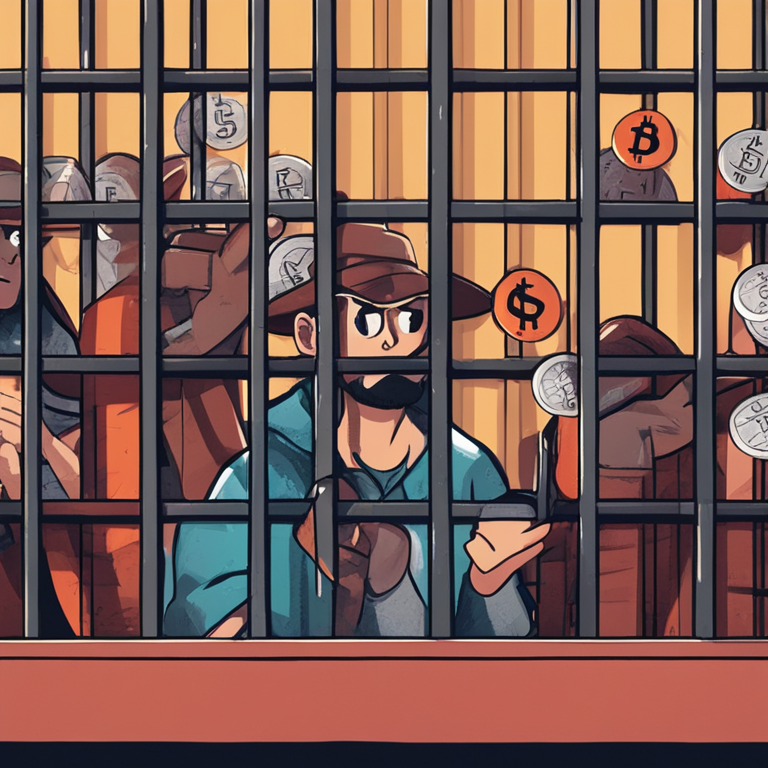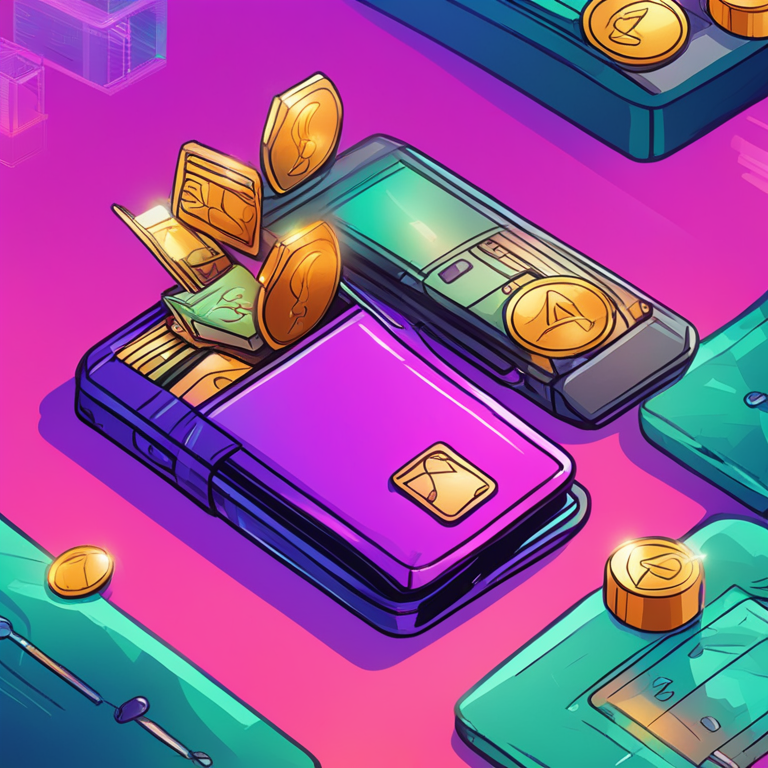
Introduction
In a digital age where freedom and privacy are becoming harder to safeguard, the case against Samourai Wallet developers stands out like a sore thumb. It's not just a battle over crypto regulations; it's an outright skirmish over personal liberties and the State's ever-watchful eye. Buckle up folks; we're diving deep into why the real villain in this tale may ironically be the one holding the gavel.
The State's Role and Definition
The nature of the State
The State, traditionally, is seen as the grand overseer of our social contract. But let's be honest, sometimes it feels more like a nosy neighbor peering over the fence. According to some perspectives, the State can be defined as any entity that retroactively pardons crimes – essentially, if the State thinks it's okay, then it is. Murder? You've got an army. Theft? Here, have some taxes. This viewpoint reveals a rather clear, if not slightly grim, picture: the State is that magical handwash that justifies actions, even if they're inherently wrong.
Forgiving crimes and authority
Forgive a crime, get authority—sounds simple, yet dangerously effective. This isn’t about slapping wrists; it’s about wielding power and making rules as you go. By offering pardons and licenses, the State essentially says, "It's okay if you mess up, as long as it aligns with our interests." This fosters a mindset of obeying out of fear rather than respect. And why not? If the rules can be bent, why bother sticking to them in the first place? It’s a neat loophole that the powers-that-be are all too happy to exploit.
Imprisonment of Samourai Wallet Developers

Accusations against Samourai Wallet
Recently, the developers behind Samourai Wallet found themselves on the wrong side of the State's version of justice, accused of conducting unlicensed money transmission and snubbing anti-money laundering laws. Talk about getting caught in a digital crossfire! Essentially, their crime? Facilitating transactions that are private, untraceable by big brother. The clincher here is that these charges hinge on laws that, from a libertarian perspective, should never have existed in the first place.
Libertarian perspective on money laundering
The libertarian view on money laundering is akin to thinking it's a made-up crime in a dystopian novel. Under their lens, a crime needs a victim. No victim, no crime. Money laundering, they argue, is the act of cleaning up dirty money to make it look squeaky clean. But if there's no harm done to anyone in the process, then why punish it? The system's logic is about as twisted as a pretzel at this point. Why reward voluntary disclosure programs that essentially do the same thing but punish anonymous transactions?

Debate on Money Laundering Laws
Let's talk about money laundering laws, shall we? Now, you might be thinking, "Why should I care about these laws?" Well, because they potentially redefine what's considered illegal and target activities that maybe shouldn’t be criminal in the first place. Who knew a little cleaning your money could get so dirty? This is where our story of Samourai Wallet's developers enters the scene. Accused of money transmission without a license and not embracing those charming anti-money laundering checks, their case raises essential questions about the nature of money laundering laws.
Nature of Money Laundering
Consider this: In a purely libertarian universe, money laundering wouldn’t qualify as a crime. For a crime to exist, there must be a victim, right? And in money laundering, who’s the victim? Imaginary Bob from accounting isn't harmed if you decide to spend your money on a snazzy new jacket. If we follow the logic trail, the essence of crime should rely on causing non-consensual harm to someone else. Money laundering, on the other hand, involves jazzing up dirty money to look legit. Harmless, and kinda cool, when you think about it. Essentially, the entire facade of it being a crime is more melodramatic than a soap opera. If the action doesn’t generate harm, should it even be punishable?
Voluntary Disclosure Programs
Ironically, some legal frameworks occasional dabble in endorsing similar actions with voluntary disclosure or amnesty programs. When the government decides to play good cop, suddenly hiding the origins of money isn't a crime anymore. If governments sporadically give a hall pass to money laundering, why not just allow it entirely? If making dirty money look clean doesn’t harm anyone, and the laws sometimes decide it's lawful, the inconsistency is bewildering. Perhaps it's time we clean up the regulations themselves. Maybe, just maybe, these money laundering laws are the real menace here, not the well-meaning wallet developers trying to keep things private.

Terrorism and Financial Assistance
Defining Terrorism Financing
Let's pivot to terrorism financing. The glamorous name given to the practice of bolstering terrorists by funding their terror-inducing missions. The relationship between money and modern-day terror is like peanut butter and jelly – inseparable. However, the line separating legitimate financial secrecy and direct terror financing is blurrier than my eyesight without glasses. The real irony? The state, which is quick to point fingers, clutches onto financial instruments that could be considered the biggest culprits of terror propagation. Tax collection and money printing, anyone? It seems like the pot is calling the kettle black.
Case Studies: Samourai Wallet, Tornado Cash, Silk Road
The cases stacking against Samourai Wallet, Tornado Cash, and Silk Road, unravel a tale where the dance between state control and financial privacy becomes a breakdance battle. The government's grip tightens around individuals, essentially fostering an environment of fear - isn't this a bit too close to terrorism? By arresting and charging these developers, the state sends a clear message to others in similar ratchets. We're not fighting terror; we're feeding into it. Transparency and fairness go down the drain when the state playground has such arbitrary rules.
State Control Over Licenses
To license or not to license, that is the question. And boy, does the state love handing out licenses like candy on Halloween – only you have to pay a premium for each. The legitimacy of state control over individual actions is debatable, especially when those actions harm no one. It’s high time we took a closer look at the state’s grip on licenses and permits. What grants the state the authority to oversee activities inherent to human freedom?
Private Actions and State Regulations
Move over, state regulations. In a rationally structured society, private actions that don’t affect others shouldn’t require state intervention. If my neighbor Bob decides to run a small money transmission service out of his garage and his customers are thrilled, why should regulatory bodies snoop around? What harm is Bob doing? Zilch. The exaggerated oversight narrows personal freedoms, turning mundane activities into bureaucratic labyrinths.
The Example of Fishing Licenses
Remember fishing licenses? It’s the perfect metaphor for state overreach. Imagine you own a lake. Your buddy wants to fish, and you’re totally okay with it. But wait, the state insists your pal get a fishing license. Ridiculous, right? That's the punchline of how the government butts into private transactions that need no oversight. What applies to fishing also applies to financial services. Why should anyone need a transmission license if they harm nobody in the process? As the waves of time move towards decentralization, concepts like Bitcoin challenge the status quo, offering financial freedom without a governmental hall monitor. The hyperbitcoinization path might be arduous, but it'll surely loosen the state's tightly clenched fists. In the end, the freedom to engage in harmless activities should prevail, echoing the mantra: "We are stronger, smarter, and more resilient."

The Bitcoin Solution
Imagine a world where there are no middlemen standing between you and your money, and where value transfers are as easy as sending a text message. Intriguing, right? Enter Bitcoin, the decentralized superhero that swoops in to save the day. However, this isn't your typical comic book story. The tale of Bitcoin and other cryptocurrencies is filled with dramatic twists and formidable foes. From financial institutions to state regulations, the journey to global adoption is anything but smooth. But hey, who doesn't love a good underdog story?
Decentralized Value Transmission
Let's jump right into the thick of it. One of the most revolutionary aspects of Bitcoin is its ability to facilitate decentralized value transmission. Think of it like passing a treasure chest directly from one person to another, without involving pirates... I mean, banks. This peer-to-peer mechanism eliminates the need for intermediaries, making financial transactions faster, cheaper, and more transparent. It's like a group project where you don’t have that one person slacking off and still taking the credit!
In the thrilling storyline of Bitcoin, miners are the unsung heroes. These folks verify and record transactions on a public ledger known as the blockchain. This keeps everyone honest and ensures that you’re not about to buy a Tesla with double-spent Bitcoins. It’s like having a notary that works 24/7, never gets tired, and won’t ask for a coffee break.
However, if you let the state narrate the story, decentralized value transmission suddenly becomes the villain. According to authorities, it facilitates illegal activities like money laundering and tax evasion. Yes, because before Bitcoin existed, everyone was an angel, right? But seriously, while it's true that bad actors can misuse cryptocurrencies, the same can be said about cash, gold, and even Pokémon cards. It’s a tale as old as time: the tool isn’t the problem; it’s how people use it.
Challenges on the Road to Hyperbitcoinization
Now, hold onto your hats because the plot thickens. The journey to hyperbitcoinization, a world where Bitcoin is the go-to currency, is fraught with challenges. Picture our intrepid adventurers—cryptocurrency developers and early adopters—trudging through a host of obstacles as they try to navigate regulations tighter than your grandma’s hug.
One of the most recent plot twists involves the developers of Samourai Wallet, who found themselves colliding head-on with U.S. government regulations. Accused of conducting money transmission without a license, they faced allegations that might make you think twice before developing the next cool app. It’s a perfect storm of FUD (Fear, Uncertainty, and Doubt) that governments love to stir up.
Let's not forget, these regulations are often touted as measures to protect us from terrorism. Yes, folks, you heard it right—Bitcoin, the supposed Robin Hood of the financial system, is being painted as a tool for terror. Yet, the irony is thicker than a bowl of oatmeal: some would argue that the state’s taxation and money printing are themselves forms of financial oppression. It’s the classic case of the pot calling the kettle black, with a bit more drama.
Conclusion

Future of the battle for freedom
As we gaze into our crystal ball, the future seems as unpredictable as Bitcoin’s price. However, one thing is clear: the battle for financial freedom is far from over. The dream of a decentralized financial system is more than just a pipe dream—it’s a possibility staring us right in the face.
But achieving true financial freedom involves more than just huddling with HODLers and browsing decentralized exchanges. It demands resilience, innovation, and sometimes a bit of cheekiness. Just remember, while the journey to hyperbitcoinization may be littered with legal landmines and regulatory roadblocks, the spirit of decentralization is alive and kicking.
Role of Bitcoin and crypto in the fight
So, what role do Bitcoin and other cryptocurrencies play in this David vs. Goliath battle? For starters, they act as tools of empowerment, providing financial independence to millions around the globe. In countries with hyperinflation or strict capital controls, Bitcoin offers an exit strategy. It's like a financial passport but without the tedious visa process.
Cryptocurrencies also bring transparency and accountability to a system that’s been somewhat opaque. Blockchain technology ensures that all transactions are recorded and immutable, making it harder for corruption to thrive. Think of it as adding a new layer of accountability, similar to having a transparent vault where everyone can see what’s inside.
In essence, Bitcoin and cryptocurrencies are the rallying cry for financial freedom. They challenge the existing norms, disrupt traditional systems, and empower individuals. While the state's struggles against them might seem daunting, remember that change has always faced resistance. But like Bitcoin itself, this movement is decentralized, resilient, and ever-evolving. With every block mined, the fortress of financial freedom grows stronger, brick by digital brick.
Ethan Taylor
Ethan Taylor here, your trusted Financial Analyst at NexTokenNews. With over a decade of experience in the financial markets and a keen focus on cryptocurrency, I'm here to bring clarity to the complex dynamics of crypto investments.



